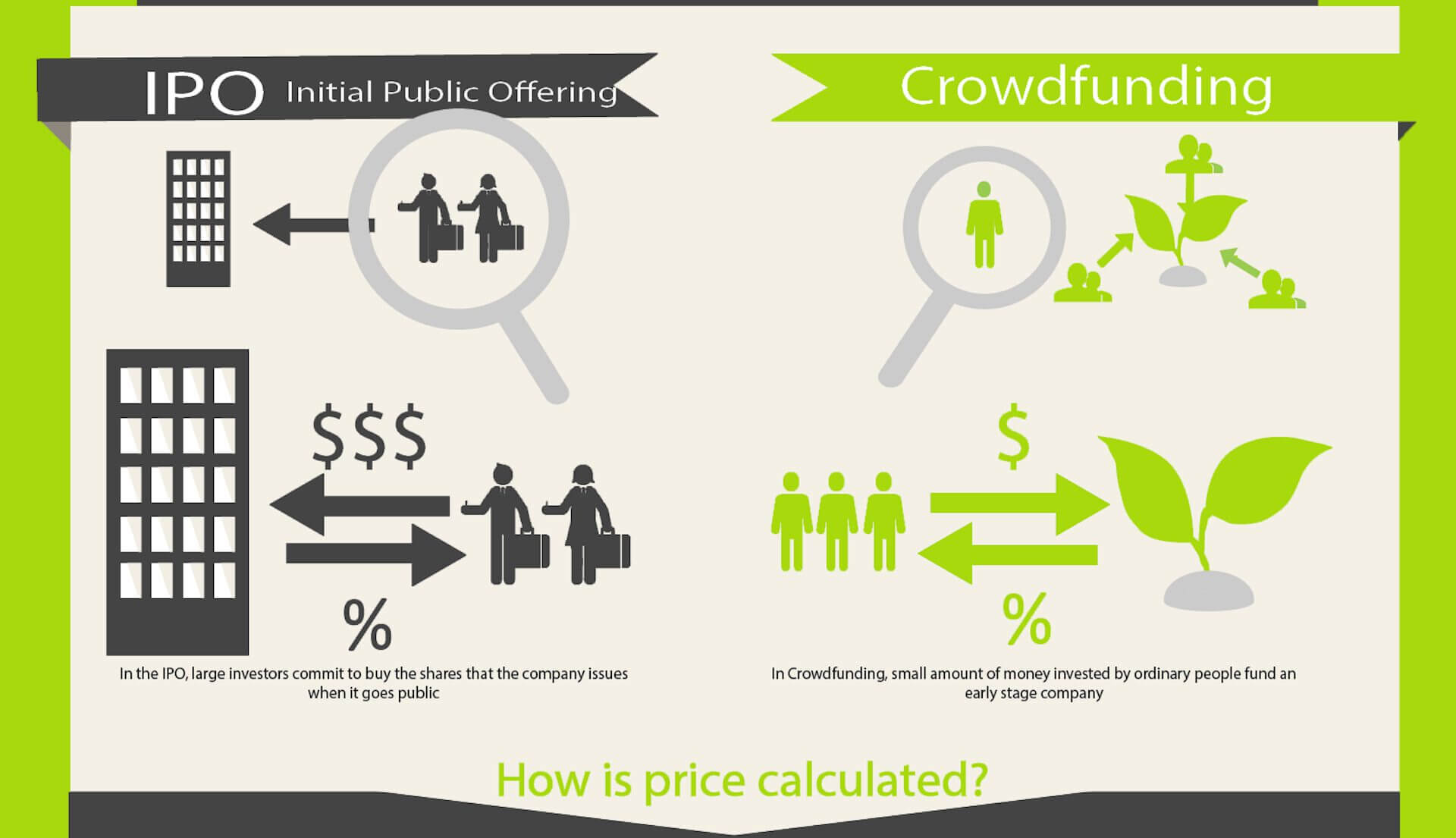 An introduction to Equidam Valuation Academy
An introduction to Equidam Valuation Academy
Who, among the entrepreneurs reading this post, feels confident in explaining what an IPO is?
Sure, you probably know the meaning: Initial Public Offering. You might know it is the process that brings companies to be traded in public stock exchanges. In a nutshell, via an IPO a company is granted access to the crowd of investors active in the market, thus allowing the company to issue shares and raise funds. If you are acquainted with equity crowdfunding, doesn’t this ring a bell? It surely does. One can reasonably claim that established stock exchanges and raising crowdfunding portals are serving the same principle: enabling companies to access capital resources.
In this post, we will highlight the similarities between the two and stress what entrepreneurs approaching crowdfunding portals should take into consideration when it comes to financial information disclosure.
The Initial Public Offering- IPOs
Unlike crowdfunding, existing stock exchanges are heavily regulated and every country has an authority in charge for ruling and controlling of the trades. (e.g. SEC in the US). Most of the regulation is aimed at promoting and enhancing the market transparency regarding the nature of the financial asset being offered, its price and location. But how is the initial price determined- that is, the opening price of an asset, especially a stock, never traded before?
In regulated stock exchanges there are different approaches to determine such value. In principle, the price should be “what the market is willing to pay”, namely the demand-supply balance determined by the market trades. Nonetheless, the lack of trading history sets substantial challenges to this approach.
For IPOS, the going-public company typically appoints an investment bank as lead manager (known as book runner or lead underwriter) who is in charge of estimating the opening price. Here, there are two options: the fixing of a price via valuation models, or the analysis of the investors’ expected demand in what is called the book-building. Usually a combination of the two is applied in order to pinpoint the best opening value. The lead manager sets a preliminary price of the stocks and then senses the investors’ appeal during a road show or an auction. The preliminary price may then be adjusted according to received interest, although this adjustment is partial and mainly only upward (source: P.Roosenboom, Valuing and Pricing IPOs).
When it comes to crowdfunding, the “going-public” process is pretty much alike, as this informative tutorial by Investopedia may prove. Doesn’t it look like any of the videos you can find on equity crowdfunding portals?
Well, if you noticed the same similarities, you can understand why equity crowdfunding can be associated with existing stock exchanges. In addition, crowdfunding portals as much as stock exchanges are available to every individual with a bank account, some savings and an internet connection.
As for the stock exchange, information transparency shall be a major issue in crowdfunding, not only about the business itself, but also and especially about the stocks being offered.
The Initial Crowdfunding Offer – ICO
So far, crowdfunding platforms are requiring their entrepreneurs to disclose information mainly about the business, the team and the product, but little or no effort has been made with regard to price (in other terms, valuation). Yet, the observable set-up in operating crowdfunding portals resembles that of established stock exchanges: the stock price is set before the launch of the online campaign.
What indications are provided to crowd investors about the determination of the price? May this be one of the reasons that prevented angel and VC organizations to embrace crowdfunding tout court? In addition, what shall be the approach for such estimation process, accounting for challenge of sense investors’ appeal? Again, the combination of a preliminary estimation along with adjustments according to the demand-supply balance looks like the best way.
As in the case of IPOs, investors, especially at this early-stage, have the incentive to lower the price as much as possible. At early stages, this effect is possibly even stronger as they may try to gain a larger stake (and say!) in the company. On the other hand, fixing a price without testing the demand may be quite of a gamble, not to mention fixing the price without any credible valuation model. So, how can entrepreneurs value their company in a way that is accurate and resembles the one of more mature companies?
A credible valuation methodology shall be applied. The famous business angel Louis Villalobos suggests that a combination of methodologies is even more appropriate. The explanation, reasoning and assumptions underlying these models shall be made available to potential investors via information documentation. The more intuitive and concise, the easier it will be to the crowd to understand how the price has been determined.
Equidam uses a mix of several valuation methodologies to give you the most accurate value of your company!
On the other hand, the investors’ appeal of the startup shall also be considered in the aforementioned documents. But, again, investors are likely to bet a low price, especially when the audience is limited. Therefore, the “expected” demand (and price) may be hard to estimate and analyze.
A solution sees the “expected” demand being substituted by the “observed” demand of comparable companies, or peers. This is also one of the valuation techniques broadly applied by financial institutions (e.g. valuation with multiples), especially when it comes to IPOs, as the paper by Roosenboom mentioned before can prove. The lack of a database of comparable transaction constitutes a hurdle. Data is spread across several organizations investing in early-stage companies and the aggregation struggles with their reluctance to share this information.
Concluding, it is clear that valuation of going-crowdfunding companies is an important piece of information and yet, entrepreneurs may find substantial challenges in estimate it.
Running a crowdfunding campaign? Prove your company value with Equidam Valuation!
 An introduction to Equidam Valuation Academy
An introduction to Equidam Valuation Academy